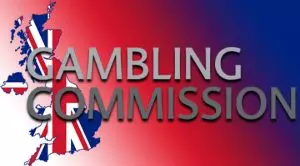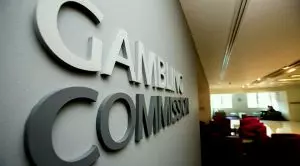 The UK Gambling Commission (UKGC) has recently announced the largest-ever fine imposed on a gambling operator in the country but the lack of more serious regulatory measures has been raising questions regarding the efficiency of the watchdog.
The UK Gambling Commission (UKGC) has recently announced the largest-ever fine imposed on a gambling operator in the country but the lack of more serious regulatory measures has been raising questions regarding the efficiency of the watchdog.
Following the announcement that it handed a record £19.2 million to William Hill, the UK gambling regulatory body faced a wave of criticism, with people asking what a gambling giant would have to do in order to see its operating licence suspended by the UKGC. The disparagers of the Gambling Commission believe that is a question that has been tested to its limits by the UK gambling industry over the past decade, with the serious lack of compliance eventually leading to the largest-ever fine imposed by the country’s gambling regulator.
As Casino Guardian recently reported, William Hill and its sister brand Mr Green did nothing to prevent customers from spending thousands of pounds within minutes, as they failed to perform the required affordability checks to make sure punters are able to afford the losses. Reportedly, more than 300 individuals were allowed to bet although they had previously signed up for a self-exclusion service that was supposed to block them from doing so.
Is It Time for Radical Overhaul of the UK Gambling Commission?
 The aforementioned failures are only part of the bigger picture of why the UK Gambling Commission is currently facing a wave of criticism for not imposing more serious penalties on large gambling businesses that already have plenty of transgressions behind their backs.
The aforementioned failures are only part of the bigger picture of why the UK Gambling Commission is currently facing a wave of criticism for not imposing more serious penalties on large gambling businesses that already have plenty of transgressions behind their backs.
The latest series of wrongdoings by William Hill and its sister brands have taken place between May 2020 and October 2021 – a period when a number of nationwide and regional lockdowns were announced by the UK Government in an effort to tackle the spread of Covid-19 – even though the country’s gambling regulatory body had previously issued an explicit warning that the industry had to be extra careful and make sure punters were not exploited by operators. Little did this warning have any effect because the failures continued, with businesses taking advantage of people as profit is the only thing they cared for.
Even the ongoing review of the gambling laws that the Government rolled out in December 2020 was not enough to make sure the failures no longer continue.
On the other hand, the UKGC critics have noted that 888 Holdings, William Hill and Mr Green had already been subject to sizeable fines for similar violations of their licence conditions. That is exactly why campaigners have insisted on the implementation of stricter measures against the companies with continuous transgressions, especially when they have already been fined due to systemic failures.
According to the ones criticising the Gambling Commission, the repetitive failures of the industry have proven that fines that have usually been described as settlements in lieu of penalties have little effect on operators that simply make the amount paid as fines in only several days of trading. Three or four days seem to be enough for a company as large as William Hill to compensate for the financial losses it would face as a result of a hefty regulatory fine but, unfortunately, this would not make things right for consumers who had experienced harm resulting from the operator’s actions.
Gambling Companies’ Licence Suspension and Revocation Needed, Critics Say
 In theory, the UK gambling regulatory body has the power to take more restrictive measures against businesses that continuously fail to stay in line with the country’s gambling laws. The UKGC is able to suspend the operating permit of a company that operates under the country’s jurisdiction and in the latest occurrence of William Hill’s wrongdoings noted that it had actually considered doing so but, eventually, decided against it because of the remedial steps taken by the operator to improve.
In theory, the UK gambling regulatory body has the power to take more restrictive measures against businesses that continuously fail to stay in line with the country’s gambling laws. The UKGC is able to suspend the operating permit of a company that operates under the country’s jurisdiction and in the latest occurrence of William Hill’s wrongdoings noted that it had actually considered doing so but, eventually, decided against it because of the remedial steps taken by the operator to improve.
Taking into account the extraordinary circumstances in William Hill’s and its sister brands’ case – the nationwide and regional Covid-19 lockdowns, the Gambling Commission’s explicit warnings for the industry, the ongoing Government review of the UK Gambling Act of 2005, the repeated offences of the company’s part – some experts believe that the watchdog had plenty of reasons to unveil much heavier penalty than issuing a warning, unveiling additional licence conditions, and handing out a fine, even if the fine, in this case, exceeds £19 million.
So, why was the licence of the British gambling giant not suspended?
Under the existing regulatory rules in the UK gambling sector, an operator would have to have failed to cooperate with the probe performed by the watchdog or to be found unsuitable to hold an operating licence issued by the Gambling Commission in order to have its licence suspended.
According to industry sources, in this case, the possibility of legal action might be just as relevant.
Reports have claimed that the UKGC has threatened some of the local gambling giants with licence suspension on previous occasions but then faced massive legal action, warning it that gambling companies would not only dispute such a decision in the future, but also the regulator’s very right to make such a ruling. Unfortunately, the Gambling Commission has neither the intention nor the budget to step into such court action.
Of course, some companies have seen their licences suspended or revoked during the years of regulation by the Gambling Commission. Some of the operators that faced such a measure include Triplebet, bet-at-home.com, and Goldchip, but all of them are much smaller than the powerhouses that regularly break the rules and the underpowered watchdog simply prefers to turn a blind eye to.
UK Gambling Regulator Called Inactive and “Toothless” in Fighting Gambling-Related Harm
 The UK Gambling Commission has been heavily criticised over the past couple of years.
The UK Gambling Commission has been heavily criticised over the past couple of years.
In 2020, the House of Commons Public Accounts Committee released a report that blamed the regulatory body for not doing enough to protect local people from potential gambling-related harm, calling it “toothless” and indifferent to the serious negative consequences experienced by some of the most vulnerable members in the UK. Furthermore, the report also criticised the Department of Culture, Media and Sport (DCMS) for being complacent in tackling the aforementioned issue.
At the time, the UKGC faced accusations of not having the proper methods to measure its own performance, although the regulator itself has urged the local gambling sector to enforce their key performance indicators (KPIs) to measure the efficiency of their customer protection measures. That is exactly why the gambling watchdog has been called inactive and “toothless”, with the chair of the Public Accounts Committee Meg Hiller MP noting that the Commission did not seem particularly interested in either the harm it is supposed to reduce or the means that might be used in an effort to do so.
Ms Hiller noted that the UK Gambling Commission needed a radical overhaul that would guarantee that, as a regulatory body, the UKGC is quicker at responding to problems, efficiently protecting consumers’ rights, and updating gambling companies’ licence conditions whenever necessary to protect vulnerable individuals.
According to the Committee’s report, the gambling regulatory body had clear overall objectives to make sure that the UK gambling market is safe and fair. However, what it lacks are meaningful indicators to measure the actual efficiency of its regulation, and that is exactly where most of its weaknesses lie. Apart from that, the UKGC was found to have a limited understanding of the impact of its actions to improve the effects of gambling on consumers.
UKGC Boosts the Value of Financial Penalties Imposed on Gambling Businesses
 To be fair, the UK Gambling Commission has increased the value of the financial penalties it enforced over the past few years but the thing is that approach turned out inefficient, especially when it comes to the largest operators in the country’s gambling market.
To be fair, the UK Gambling Commission has increased the value of the financial penalties it enforced over the past few years but the thing is that approach turned out inefficient, especially when it comes to the largest operators in the country’s gambling market.
After receiving a massive portion of criticism in 2020, the watchdog has acknowledged that it could do more to improve the process of evaluation of the impact businesses’ wrongdoings had on customers and noted that it was planning to invest more efforts to enhance its evaluation framework. As far as we know, little has changed for the almost three years after, with British gambling giants still breaking the rules, and the UK Gambling Commission still recognising the need for a radical improvement in data collection and customer rights protection.
So far in 2023, the gambling industry in the UK faced monetary penalties worth a total of £34,149,885. The sector has seen a record fine of £19.2 million imposed on William Hill for a bunch of transgressions, including social responsibility (SR) and anti-money laundering (AML) failings at its retail and online outlets, as well as its sister brand Mr Green. The beginning of April saw another company – TGP Europe Limited – face a monetary penalty worth £316,250 for a number of AML and SR failures, too.
Earlier this year, Kindred Group’s brand 32Red was fined £4,195,655 after a UKGC investigation found that the company had insufficient communications with potential gambling addicts. The gambling operator also failed to implement anti-money protocols. Another fine, worth £2,937,599 was imposed on another brand of Kindred Group, Platinum Gaming, following some AML and social responsibility failures.
Before that, in mid-February, the UK gambling regulatory body fined Blue Planet Ltd, trading as 10Bet, £620,000 after finding that the company failed to meet the country’s AML and SR regulations. Several other monetary penalties preceded this action, with In Touch Games (ITG) fined £6.1 million, TonyBet Ltd fined £442,750, and Vivaro Ltd fined £337,631, respectively.
The efforts of the UK Gambling Commission for the entire 2022 resulted in regulatory fines worth a total of £47,366,901, with Entain suffering the largest penalty estimated at £17,000,000.
- Author


